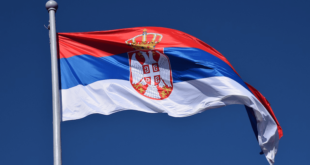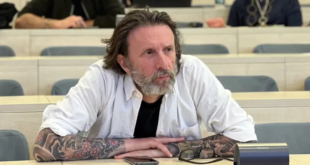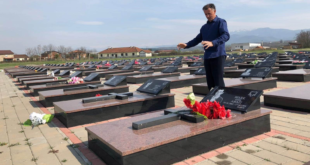 Russia’s President Vladimir Putin has officially suspended the Conventional Forces in Europe (CFE) treaty. The decision was previously agreed by the Russian State Duma in November.The law suspends Russia’s obligations under the treaty signed in Paris in 1990, shortly before the Soviet Union’s collapse.
Russia’s President Vladimir Putin has officially suspended the Conventional Forces in Europe (CFE) treaty. The decision was previously agreed by the Russian State Duma in November.The law suspends Russia’s obligations under the treaty signed in Paris in 1990, shortly before the Soviet Union’s collapse.
It was an instrument of maintaining balance between NATO and the Warsaw pact countries in Europe. It limits five forms of conventional arms, including tanks, aviation and navy ships.
However, after the USSR and Warsaw pact ceased to exist, it became necessary to modernise the treaty. And in 1999 an agreement was signed in Istanbul on revising the Treaty in order to match the new military and political realities in Europe.
Russia is one of four countries to have ratified the adapted version of the agreement.
However parliaments of the NATO countries haven’t done so, despite numerous calls from Moscow.
Russia’s Foreign Minister Sergey Lavrov says Russia will continue working to maintain the strategic balance in Europe despite the moratorium.
“The law has been signed and starting from December 12 Russia will suspend its obligations on the Conventional Forces in Europe treaty. The treaty signed in 1999 was only ratified by Russia, Ukraine, Belarus and Kazakhstan while NATO countries are putting off the ratification citing unsubstantiated excuses that have nothing to do with the treaty,” he stressed.
“We see attempts to meet some of our concerns. Our moratorium doesn’t mean that we will stop working. After December 12 we will still be seeking agreements that will allow us to restore the strategic balance and stability in the area,” Lavrov concluded.
U.S. considers Russia’s move to be a mistake, that’s according to Nicholas Burns, the U.S. Under Secretary for Political Affairs.
“We were very sorry and disappointed to see the announcement by President Putin. This is a mistake. It is Russia unilaterally walking out of the one of the most important arms control regimes of the last 20 years,” Burns said.
But Aleksander Pikayev, a political analyst from the Moscow-based Institute for World Economy and International Relations, says Russia may return to the treaty.
“It is not a denouncing – it is a suspension. As soon as the West would finally decide to return back, to make certain moves which would help to maintain this cornerstone of European stability, as NATO claims, Russia would be hurrying to come back. So, the doors are not closed. Today or December 12 is not a final deadline, negotiations should continue. There are plans for further meetings and there is a limited hope that the West would make steps which would help to save this very important treaty,”  Pikayev said.
 Eurasia Press & News
Eurasia Press & News



